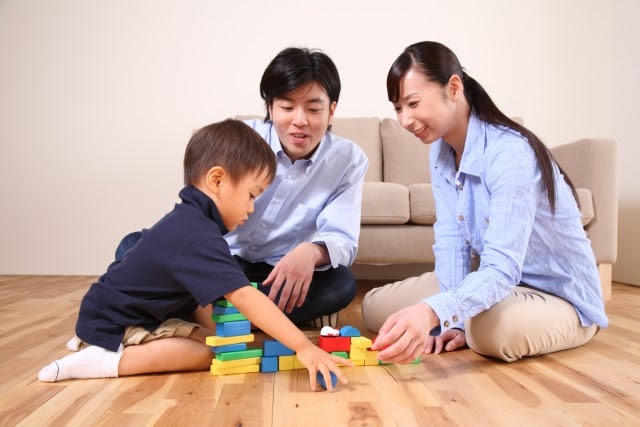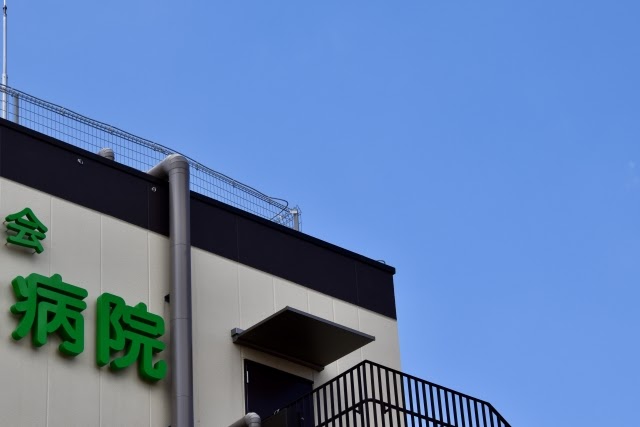
Written by Hiru Andon (昼行灯)
Translated and Edited by Vosot Ikeida
Having a Parent of Educator
My father is a teacher.
He has devoted himself to human rights education and has been respected by our local people as an ideal teacher. And my family looks like an ideal family to the outside world.
However, my father does not understand the human rights of his son, who is a hikikomori. He says,
"You have to start working right now. If you can't work, you should apply for a certificate for mental disability!"
He pressurizes me with such a black-or-white choice.
Probably he was seduced by an irresponsible worker of the social insurance office to say so, who knew nothing about me.
"If you can't work, you are mentally disabled"
This view of human nature does not take human rights into account.
My parents sought help also from the social worker at our city office for my hikikomori situation. So I was summoned by the official, and I talked to him several times about my reasons. However, the official supporter was completely by the book and I could not feel any sincerity in dealing with me as a person.
Looks Are Everything
This year I am turning to be 40.
17 years have passed since I graduated from university. I am finally becoming a middle-aged hikikomori, and I feel impatient about the fact.
When I was a child, I was very sensitive. I was afraid of the most trivial things and had asked visitors I didn't like to go home. But I had a strong ability to concentrate and was able to complete difficult puzzles in a short time.
My grades were good enough and I went on to attend a private secondary school. It was a very controlled school, where the aim was to get into top universities. Corporal punishment was the norm and would certainly be a problem today. My classmates didn't question the school rules, and they were obedient to follow instructions by teachers.
However, at this time I developed an "excessive aversion to anything fake" and started to turn against our teacher of the Japanese language, because he was so good at making us laugh and controlling childish students. So I became rebellious against him, and I stop studying because of that.
Since I spent such high school days, my grades went down dramatically, and I could not go to any higher level of universities like my classmates did. I only had to enter a low-level university, then I found the students there were a different breed to my high school classmates. I met a sort of culture shock. In a word, they were so showy and empty-headed. The campus was full of couples.

Even without the atmosphere of the university, the youth culture in Japan was generally dominated by the tendency of "Looks are Everything". Today's buzzwords such as "Instagrammable" or "Lookism" seem to speak of this trend.
I had a complex about my looks, so the school caste system, which ranked men's faces as three categories of "handsome", "creepy", and "ugly", was worse than bullying to me, and it hurt my feelings deeply.
So, it was natural for me to get isolated and out of place on campus.
However, I did not withdraw easily from my social life. I challenged several part-time jobs. But none of them allowed me to continue and I began to feel increasingly alienated anywhere.
Then I started to think,
"I wouldn't be able to date any girl in this world for the rest of all my life simply because I have a bad looking".
In this way, I became desperate, pessimistic, unmotivated to find a job.
No Psychiatrist Listened to Me
After graduating from university, I went back to my parents' house because I didn't have a job.
I went to see a psychiatrist for my insomnia, but no psychiatrist would listen to me. They all tried to blame my mental problems of adolescence on schizophrenia.
They say that the belief "I have a bad looking" is a disease called dysmorphophobia. But it's not so simple as that, I would say. To me, the "Looks are Everything" mentality which dominates the young generation seems to be a total craziness.
I have read a lot of books on hikikomori, and I am sick and tired of them, because they are just following Japan's leading psychiatrist Tamaki Saito's discourse, and the journalists have been unnecessarily agitating the 8050 issue(*1), causing anxiety to the people involved and their families.
*1; 8050 Issue (Eighty-Fifty Issue: 8050問題 / Hachi Maru Go Maru Mondai)
One of the main problems caused by the aging of hikikomori in Japan. It refers to the problem that arises in a family with hikikomori, of which parents are in their 80's and children are in their 50's.

Not to Be Talked, But to Talk
In the meantime, I learned about the activities by Mr. Vosot Ikeida and his fellows on a TV program by NHK. I was immediately convinced that this kind of activity would give us new lights to struggle with problems of hikikomori in the future.
He says "Hikikomori is not someone to be talked about, but to talk". I have the same feeling.
Soon I am going to become an aged hikikomori and the social pressures will become stronger and stronger on me.
But I don't want to give up my life yet.
I believe that there is something we can do, even if hikikomori look to be the people who are useless and burdens for society.
(End)
...To the Original Japanese version of this article
